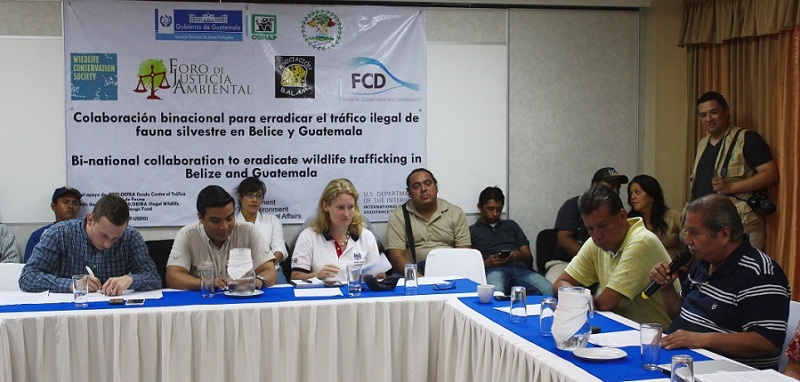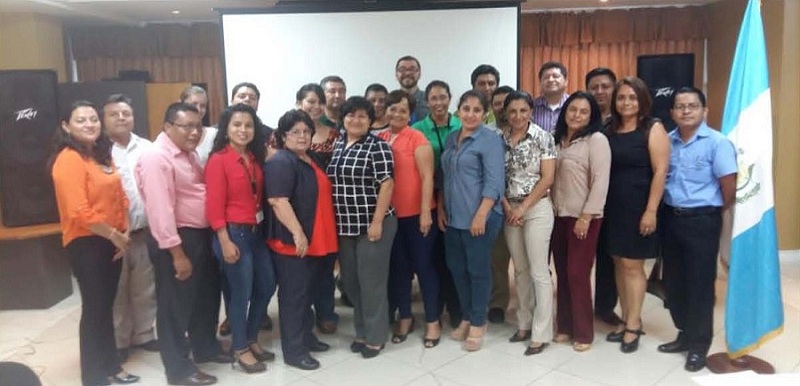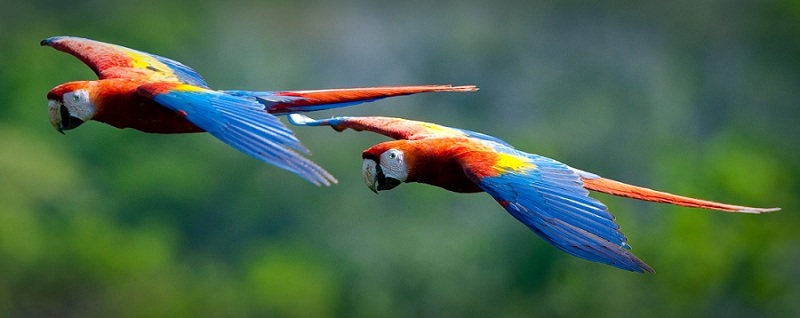Although elephants and rhinos garner much of the global attention surrounding wildlife trafficking, Latin America’s macaws and parrots are also being devastated by illegal trade fuelled by regional demand, and demand from US and European markets. Scarlet macaws, once widespread across Central America, have been reduced to fewer than 1000 individuals. Macaws are smuggled in Guatemala for sale on the illegal pet market, and trafficking of other species is reportedly increasing. Smuggled macaws originate both from within Guatemala and from neighbouring Belize, and populations of the species in both countries are currently threatened with extinction as a result of this illegal trade. There are currently around 300 scarlet macaws remaining in the wild in Guatemala, while Belize’s population consists of approximately 200 individuals and suffers considerable poaching pressure. The critical status of this species has led to its inclusion in Category 2 of Guatemala’s Threatened Species List (Listado de Especies Amenazadas de Guatemala; LEA) and in Appendix 1 of the Convention on International Trade in Endangered Species of Wild Fauna and Flora (CITES).
WCS Guatemala is working in collaboration with other Civil Society Organizations to eradicate wildlife trafficking between Belize and Guatemala. This work forms part of two projects:
· “Bi-national Collaboration to Eradicate Wildlife Trafficking in Belize and Guatemala”, funded by the UK DFID/DEFRA IWT Challenge Fund: A 3-year project (February 2015-December 2017) that aims to improve government capacity and collaboration in Belize and Guatemala to eradicate cross-frontier wildlife trafficking in the Chiquibul-Maya Mountains ecoregion, through (1) improving enforcement to detect and arrest poachers in Belize; (2) improving intelligence and prosecution of wildlife traffickers detected in Guatemala; (3) improving cross-border and cross-sector coordination on wildlife trafficking; (4) improving livelihoods alternatives for men and women in rural communities along wildlife trafficking routes in the Guatemalan Adjacency Zone; and (5) increasing awareness in rural Guatemalan communities adjacent to Belize and among authorities in Guatemala City about the impacts of wildlife trafficking on endangered species such as the scarlet macaw.
· “Scaling up Enforcement Capacity and Cooperation to Combat Wildlife Trafficking Networks in Latin America and Southeast Asia”, funded by the US Department of State: A 2-year project (September 2015-September 2017) that aims to combat wildlife trafficking in Asia and Latin America by strengthening the commitment and institutional capacity of key agencies to enhance enforcement effectiveness and ultimately disrupt criminal trafficking networks. This will be achieved through a replicable and scalable model for international government-government collaboration along major transcontinental and sub-regional wildlife trafficking routes. A key component of the project will be the provision of cross-border investigative training for priority countries in Latin America to strengthen law enforcement information sharing and investigative functions that can assist in major wildlife arrests and seizures. This modular training program will ultimately be linked into ROAVIS (Wildlife Legislation Compliance and Enforcement Network in Central America and the Dominican Republic) as a platform for future expansion across CAFTA countries.
Bi-national Collaboration to Eradicate Wildlife Trafficking in Belize and Guatemala:
Lessons Learned & Recommendations

This page was funded in part by a grant from the United States Department of State. The opinions, findings and conclusions stated herein are those of the authors anddo not necessarily reflect those of the United States Department of State.
Partners in Guatemala:
Consejo Nacional de Áreas Protegidas (CONAP)
DIPRONA
Ministerio Público
Asociación Balam
Foro de Justicia Ambiental de Petén
Wildlife Conservation Society
Partners in Belize:
Ministry of Agriculture, Fisheries, Forestry, the Environment and Sustainable Development
Forest Department
National Police/SPU
Friends for Conservation and Development

IWT Press Conference held in Guatemala with UK Ambassador Sarah Dickson, June 2015

Workshop on the effectiveness of environmental legislation in combatting illegal wildlife trade, held in Flores, Guatemala, March 2016

Scarlet macaws, the target species of the IWT Challenge Fund project